US Gulf Coast Fuel Oil Imports Hit Five-year Low
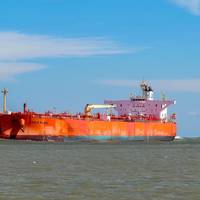
Imports of fuel oil bound for the U.S. Gulf Coast fell to a five-year low last month as refiners ran more cheap, heavy Canadian crude and geopolitical tensions in the Middle East pressured fuel oil flows.Fuel oil deliveries to the Gulf Coast dwindled in February to just 318,000 barrels per day (bpd), a 20% drop from the prior month and marking their lowest level since February 2019, data from tanker tracking firm, Kpler showed.Heavy fuel oil feedstocks like high sulfur fuel oil…
Oil Spotted at Bonaire's East Coast

Oil stains possibly coming from neighboring Tobago have reached the island of Bonaire, local media said on Monday, prompting authorities to begin organizing protection to beaches and mangrove areas.Since an oil spill from a capsized vessel was first spotted by Trinidad and Tobago's Coast Guard on Feb. 7, it has blackened the Caribbean nation's beaches and is threatening other countries, including Grenada and Bonaire, whose main source of revenue is tourism.Part of Bonaire's East coast…
Venezuela's Oil Exports Drop 8% in April amid Quality-linked Delays
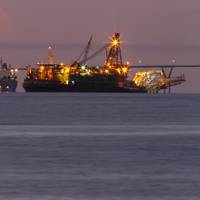
Venezuela's oil exports fell 8% in April from the previous month amid continued delays linked to poor-quality crude grades and insufficient oil upgrading capacity available, according to documents and vessel monitoring data on Thursday.U.S.-sanctioned Venezuela recovered a portion of lost production last year, but crude shipments have been volatile, bouncing some 200,000 barrels per day (bpd) in the space of a few months as its ability to turn its extra-heavy oil into exportable grades has waxed and waned.State-run oil firm PDVSA and its joint ventures exported an average of 644…
Venezuela's Oil Exports Up in July, Fueled by Ship-to-ship Transfers
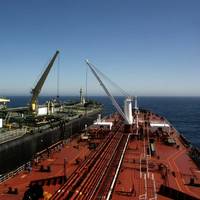
Venezuela's oil exports increased for the second consecutive month to 713,097 barrels per day (bpd) in July, as state-run PDVSA offset loading delays at its main port by boosting ship-to-ship transfers, according to tracking data and documents.That was Venezuela's highest level of oil exports since February, according to the data.A growing number of mostly unknown clients with no record in oil trading have helped PDVSA increase shipments, most of which now goes to Asia. Its traditional…
BIMCO on Tanker Shipping; The Worst is Not Over
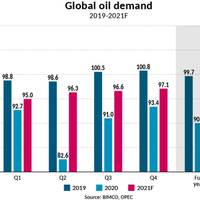
While the tanker market had a strong run at the outset of the COVID-19 pandemic, according to a report released this morning by BIMCO, tanker shipping will not benefit this year from the usual strong winter seasonal effect. Though the new lockdowns being introduced in many countries are less strict than in the spring, the effect on tanker shipping will be worse, given the supply glut of Q2. The news of an effective vaccine offers some hope of a global oil demand recovery but, however it comes about…
IMO2020: Low Sulfur Fuel Potential Pitfalls

(This is excerpted from Maritime Reporter & Engineering News' January 2020 "The Path to Zero" column.)Are the world’s ships’ engines ready for IMO compliant very low sulfur fuel? That’s a wide open question as ship owners step to the end of the preparatory gang-plank on January 1, 2020 when 0.5% very low sulfur distillate fuels (VLSF) have to replace residual heavy fuel oil (HFO) containing 3.5% sulfur.You might think that given the length of time to prepare – since 2008 – shipping experts and engineers would have a clearer picture about new fuels and marine engines and operability.
Singapore Fuel Stocks at Eight-month Low Ahead of IMO 2020 Deadline

Oil product inventories in the Singapore storage and trading hub fell to an eight-month low in the week ended July 17, official data showed, in one of the latest signs that suppliers are gearing up for rule changes to make marine fuel cleaner.Singapore onshore stocks of petroleum products, which include gasoline, diesel, jet fuel and residual fuel oil, came in at 38.372 million barrels, down from 41.725 million barrels in the previous week and their lowest since the week ended Nov.
Bunker Fuel Mkt to Reach $273bln by 2025
The global bunker fuel market, which was valued at $137.21 billion in 2017, is expected to reach $273.05 billion by 2025, growing at a CAGR of 9.4% during the forecast period, 2018-2025.Increased offshore hydrocarbon exploration activities in offshore destinations and growth in marine trade due to rise in import-export activities contribute to the overall growth of the global bunker fuel market, said a report published by Allied Market Research.However, stringent government regulations regarding the use of bunker fuel such as residual fuel oil (RFO) containing pollutants such as sulfur and nitrogen that are capable enough to disturb the marine life cycle restrain the market growth.Conversely…
Diesel Traders: Shortage is Coming

Gasoil traders expect the middle distillates market to stay well supplied until almost the end of 2019 before swinging into deficit with the introduction of new maritime fuel regulations.Calendar spreads for low-sulphur gasoil delivered to Europe's Amsterdam-Rotterdam-Antwerp hub are currently in contango through until October before shifting to backwardation from November onwards.In futures markets, contango structures, where future contract prices are higher than front-month prices, are associated with expectations of adequate or rising inventories.
Diesel Traders See Shortage, but not yet

Gasoil traders expect the middle distillates market to stay well supplied until almost the end of 2019 before swinging into deficit with the introduction of new maritime fuel regulations.Calendar spreads for low-sulphur gasoil delivered to Europe's Amsterdam-Rotterdam-Antwerp hub are currently in contango through until October before shifting to backwardation from November onwards (https://tmsnrt.rs/2WgXabR).In futures markets, contango structures, where future contract prices are higher than front-month prices, are associated with expectations of adequate or rising inventories.
How Refiners Plan to Grapple With Fuel Oil Output After 2020

High-sulphur fuel oil (HSFO), essentially the leftovers of an oil refiner's output, will still flow from refineries around the world even after new rules start up in 2020 curtailing its use in the global shipping fleet, a Reuters survey showed.Sixty percent of the 33 refineries contacted by Reuters in a global survey will still produce HSFO in 2020 although the supply will tighten as 70 percent of these refiners plan to reduce their output.Starting that year, ships will have to use marine fuel…
Shell Ships 'Slurry Oil' from Singapore to UAE
In an unusual arbitrage move, Shell International Eastern Trading Company (SIETCO) has chartered a tanker to ship up to 80,000 tonnes of slurry oil from Singapore to Ruwais in the United Arab Emirates (UAE).Shell has chartered the tanker Maersk Prosper to load 80,000 tonnes of fuel oil from Singapore on Aug. 18 to 20 and for discharge into Ruwais at a $450,000 fee, according to data from two shipbroker reports and a trade source with knowledge of the matter.Ruwais in the UAE is the site of Abu Dhabi National Oil Corp's (ADNOC) 800,000-barrel-per-day (bpd) refinery.The Ruwais refinery rarely imports residual fuel oil products. Since January 2017…
S.Korean Refiners Look to Cash in on 2020 Mandate
Three refiners to spend more than $5 bln to upgrade or add units. South Korean refiners are planning to spend over $5 billion on plant upgrades in response to tighter rules on shipping fuel, boosting production of low-sulphur fuel oil as well as other high-end products. The refiners hope the investment, which comes ahead of the 2020 introduction of the new rules, will make them one of the biggest beneficiaries of the new regulations, with many competitors still waiting to commit to new spending. "Not many refiners are doing so. Korean refiners are investing proactively," said Hwang Yu-sik, an analyst at NH Investment & Securities. In 2016…
Global Trade Surge Fuel Oil Markets
Global trade is growing at the fastest rate for six years - which is both a symptom and a cause of the recovery in commodity markets. World trade volumes were up almost 5 percent year-on-year from May to July, according to estimates compiled by government economic planners in the Netherlands. Growth was four times faster than at the same point in 2016 (http://tmsnrt.rs/2y89NxC). Global trade and commodity markets are linked in a circular causal relationship, which is one of the most important in the macroeconomy and a key source of fluctuations in the business cycle. Commodities, from grains to minerals, metals and oil, are the largest item in global trade by tonnage, so the state of commodity markets has a major impact on world trade flows.
IMO Low-Sulfur Requirements to Disrupt Industries
The International Maritime Organization (IMO) recently confirmed that global refiners and shippers must comply with new regulations to reduce the sulfur content in marine bunker fuels by January 2020—five years earlier than many expected. As a result, both the global refining and shipping industries will experience rapid change and significant cost and operational impacts, according to new analysis from IHS Markit, the leading global source of critical information and insight. “While the IMO is taking positive action to address the environmental impacts of air pollution from ships, the rapid change creates significant disruption for both the refining and shipping industries,” said Kurt Barrow, vice president of downstream research at IHS Markit.
S-Oil, Petronas Ink Long-term LNG Deal
South Korea's third-largest refiner S-Oil Corp signed a long-term liquefied natural gas (LNG) supply contract with Malaysia's Petronas for 15 years starting from next year, the North Asia company said on Friday. S-Oil expects to buy 700,000 tonnes of LNG per year from state-owned Petronas from March 2018 through March 2033, it said in a stock filing exchange. "We have inked the deal on good terms for our company amid the current favourable LNG market conditions," said the refiner in the filing. S-Oil, whose main shareholder is Saudi Aramco, declined to provide price details for the deal. The refiner said in a separate statement the deal was part of its efforts to ensure stable supplies of LNG.
Op/Ed: Shiphandlers Beware
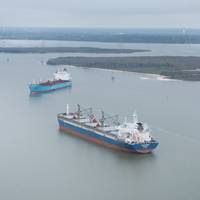
Was the closing of the Houston Ship Channel for over three days in March 2015 due to the use of Ultra Low Sulphur Fuel Oil (ULSFO)? After reviewing the testimony, and evidentiary material presented by the National Transportation Safety Board (NTSB) regarding the 2015 Conti Peridot’s collision with the Carla Maersk, it is the authors' opinion the report fails to address significant contributing factors. The NTSB has overlooked a serious threat to vessel operations throughout the world.
Op/Ed: Shipping's Energy Challenge
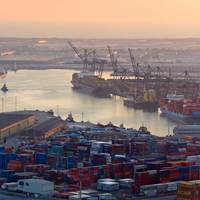
There is no more economically and environmentally efficient way of transporting the world’s goods than by sea. Compared to air or road freight, based on per ton of cargo shipped, shipping’s carbon footprint is small. Yet with the 60,000 or so ships that transport 80 percent of the world’s goods emitting about 1.12bn tons of CO2 each year, almost 4.5 percent of all global greenhouse gas emissions, it is unequivocal that we need a viable way of reducing our environment impact. As other sectors reduce their carbon footprint shipping’s is likely to increase as an overall percentage.
IBIA on Global sulphur cap
Even if, in theory, globally there is refining capacity to produce sufficient fuels to meet the 0.50% sulphur cap in 2020, if you take a more detailed look the picture is very different. In fact, several countries told the 70th session of the Marine Environment Protection Committee (MEPC 70) that they would not have sufficient refining capacity to offer compliant fuels to ships in 2020. Some of these countries are major bunker markets today, providing large quantities of residual fuel oil to ships calling at their ports, and some are also major providers of residual fuels to bunker markets in other countries. International Bunker Industry Association (IBIA) has also spoken to representatives for other countries and refineries who have said that…
Low Tanker Rates Boost Long-distance Trade -EIA
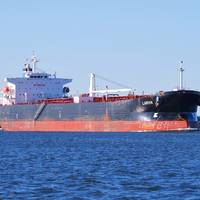
Recent expansion of the global crude oil and petroleum product tanker fleet has resulted in falling or lower tanker rates for much of 2016 that have widened the geographic scope for economically attractive trade at a time when inventories of both crude oil and petroleum products are at high levels, according to the U.S. Energy Information Administration (EIA). In recent years, growing global oil production and growth in global refining capacity in markets distant from crude sources led to an increase in orders for new vessels in anticipation of an increasing need for tanker transportation.
Fuels of the Future

The imposition of a global 0.5% sulfur cap may be less than four years away. This clearly will eliminate residual fuel from the available fuel options unless you have fitted your vessel with a scrubber or other exhaust gas treatment technology in order to comply with MARPOL Annex VI emission regulations. At the start of 2015, permitted sulfur levels in emission control areas (ECA) dropped from 1% m/m to 0.10% m/m. Although this was a large reduction, the switch was relatively…
Cheaper Fuel to Boost Container Shipping
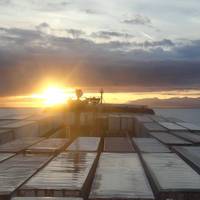
Lower oil prices are sharply reducing the cost of shipping merchandise from Asia to the United States and Europe as the cost of bunker fuel tumbles. Container shipping companies deal with the volatility in fuel prices by adding a separate bunker adjustment factor or fuel surcharge to their freight rates. Fuel can account for more than 60 percent of the total operating costs of moving freight across the oceans so the surcharges are one of the most important elements of total transportation costs.
A History of U.S. Oil Export Controls
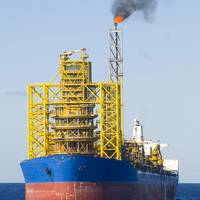
On Oct. 20, 1973, King Faisal of Saudi Arabia imposed a total embargo on oil shipments to the United States among other countries in response to their support for Israel during the Arab-Israeli war. Faisal's decision led directly to the introduction of a ban on U.S. crude exports, which remains in force in a slightly modified form and is now the focus of an intense struggle for reform. Following the U.S. mid-term elections next month, Congress will take up the issue again, a debate that would benefit from an understanding of the history behind the ban. On Oct.









